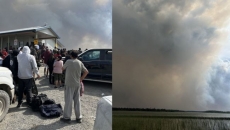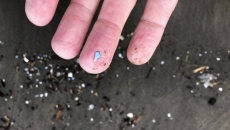The group representing Canada's physicians has formally apologized for the harm medical professionals caused to Indigenous Peoples, saying it is "deeply ashamed" and "owning its history" of racism, neglect and abuse.
Today in Victoria BC, the CMA will apologize on behalf of the medical profession, for past and ongoing harms to #IndigenousPeoples.
— Canadian Medical Association (@CMA_Docs) September 18, 2024
The apology ceremony is being livestreamed on YouTube today at 1:00 pm PT (4 pm ET).
Watch here: https://t.co/Xianzf1wEi pic.twitter.com/KRNEzhChxG
At an apology ceremony in Victoria attended by representatives from the First Nations, Inuit and Métis communities, the Canadian Medical Association says it is sorry that it has lost the trust of Indigenous communities and has committed to righting its wrongs.
The association says its research has found a history of harm caused by the Canadian medical profession, including "Indian hospitals, forced medical experimentation, forced sterilization and child apprehensions."
Today in Victoria BC, the CMA will apologize on behalf of the medical profession, for past and ongoing harms to #IndigenousPeoples.
— Canadian Medical Association (@CMA_Docs) September 18, 2024
The apology ceremony is being livestreamed on YouTube today at 1:00 pm PT (4 pm ET).
Watch here: https://t.co/Xianzf1wEi pic.twitter.com/KRNEzhChxG
The group also says research has turned up systemic racism in the way physicians and others have dealt with Indigenous community members as well as the use of "outdated, racist terms," creating an environment of "unsafe" and segregated health care.
The association says both actions and inactions by Canadian physicians created deep mistrust by the Indigenous community towards health care systems, leading to further harm to members.
Dr. Alika Lafontaine, the organization's first Indigenous president in its 157-year history, says in a video message ahead of the apology that "recognizing truth is essential to support healing, improve Indigenous health and reconcile the ties between health professionals and Indigenous patients."
The group also says it is committed to tracking physicians' progress in addressing the harms caused, which includes providing regular updates about the association's Indigenous health initiatives.






